EXPERT
Issues
Locations
DOWNLOAD
The VRIC Monitor is a one-of-a-kind, monthly report from SFS tracking extra-regional influence in Latin America. VRIC stands for Venezuela, Russia, Iran, China where Venezuela represents the country itself, but also the broader Bolivarian Alliance or ALBA. Likewise, Iran represents the Islamic Republic and a growing presence of Middle Eastern actors in Latin America, namely its chief proxy, Hezbollah. The monitor is comprised of open source information selected by SFS analysts and fellows. This is not a complete list of media reports on VRIC presence in Latin America, but a snapshot of open-source media highlighting the major areas of VRIC influence.
Overview
In February, the VRIC alliance has focused primarily on propagandizing the ongoing crisis in Venezuela while the United States has sent medical supplies, foodstuffs, and hygiene kits to the Colombian-Venezuelan and Brazilian-Venezuelan borders. The Maduro regime blocked U.S. humanitarian aid but has welcomed millions in Russian aid, as well as military technology and defense support from Russia and China. The battle over humanitarian aid played out in the UN Security Council session on February 26, where Russia and China vetoed the U.S. resolution to call for free and fair elections and approve U.S. humanitarian aid to Venezuela. Meanwhile, President Vladimir Putin plans a future trip to Bolivia in the spring to discuss the Venezuela crisis and increase Russia’s role with the ALBA bloc.
The increasing U.S. sanctions on Venezuela have introduced new Middle Eastern actors to the VRIC alliance. Cuba has reportedly turned to Qatar for oil, while Turkey served as a destination for 23 tons of gold from Venezuela last year. An additional eight tons of gold have recently been removed from Venezuela’s central bank as its president, Calixto Ortega, was on a trip to Turkey, Russia, and China. The PRC is leveraging its economic clout in the region to advance its diplomatic overtures in the Caribbean and signed major lithium deals in Bolivia and Chile. Lastly, Latin America is seeing the rise of a new trade partner and a competitor to China: India, who has increased its profile this past month in terms of trade and investment to the region.
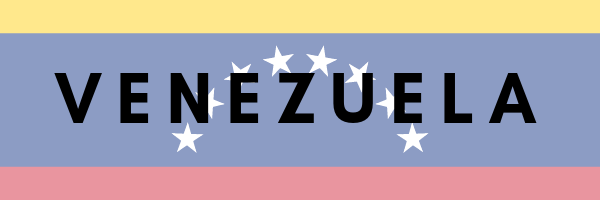
Venezuela continues to grab international headlines as the United States and the Lima Group strengthen their support for the interim president, Juan Guaidó. On February 27, Vice President Mike Pence announced an additional $56 million in humanitarian aid to the Guaidó government, while urging other Lima Group members to cancel visas of Maduro regime members and recover the stolen assets of Venezuela’s public sector. The VRIC alliance is trying to counter this by reportedly sending 300 tons of humanitarian aid from Russia and Iran has offered medical assistance to Venezuela. On February 28, fifteen Palestinian doctors arrived in the Vargas state of Venezuela without proper documentation prompting an outcry from various medical associations in the country.
After the Maduro regime burned and blocked humanitarian assistance intended for the Venezuelan people on February 23, political tension is at an all-time high. The Maduro regime has cut diplomatic ties with Colombia and is considering doing the same with Brazil. Prior to this, the Maduro regime held its largest military exercise from February 10-15 called “Bicentenario de Angostura” to shore up support among the military ranks. Bolivia continues to show strong solidarity with the Maduro regime. Evo Morales is trying to advance the presidential elections in Bolivia as his government initiates a series of infrastructure projects with VRIC support.
VENEZUELA AID TRACKER
| United States | $76 million dollars |
| Argentina | Help unit |
| Canada | $39 million dollars |
| Chile | 17 tons of food & medical supplies |
| China | None specified |
| EU | $65 million euros |
| Germany | €5 million euros |
| Iran | Unspecified pledge & medical aid |
| Italy | €2 million euros |
| New Zealand | $500,000 dollars |
| Russia | 300 tons of food & medical supplies |
| Spain | €2 million euros |
| Sweden | $7 million dollars |
| Taiwan | $500,000 dollars |
| Turkey | Pledged, but none specified |
| UK | £6.5 million pounds |
- Nicolás Maduro has ordered state oil company PDVSA’s office in Lisbon to be relocated to Moscow, Vice President Delcy Rodriguez said, a move she said was designed to help safeguard her country’s assets. – Reuters on 01-MAR
- Russia pledged international support for the Nicolás Maduro regime while the U.S. announced a new round of sanctions against government officials, as a bitter standoff over the South American country’s future intensifies. – The Wall Street Journal on 01-MAR
- The Treasury Department announced new sanctions against Venezuelan officials who played a role in blocking humanitarian aid from entering the country from Brazil and Colombia. – The Hill on 01-MAR
- A delegation of 15 Palestinian doctors arrived at Simón Bolívar International Airport on Thursday, February 28. The Health Minister, Carlos Alvarado, met the doctors upon arrival and reported that they will be assisting in surgical operations in four hospitals in Caracas and Vargas. – Efecto Cocuyo on 01-MAR (content in Spanish)
- Turkish state media reports, Venezuelan Vice President Delcy Rodriguez will hold talks with Russian Foreign Minister Sergei Lavrov in Moscow, the latest in a flurry of visits by Venezuelan politicians to staunch ally Russia. – TRT World on 28-FEB
- Nicolás Maduro has been funneling gold out of Venezuela to the United Arab Emirates. The regime is thought to have sold 29 tons of gold between January and February through a network that links Caracas with Istanbul and Dubai. – Infobae on 28-FEB (content in Spanish)
- At least eight tons of gold were reportedly removed from the Venezuelan central bank’s vaults by government officials last week, as Nicolás Maduro seeks to raise capital amid tightening sanctions. – The Independent on 28-FEB
- Due to U.S. sanctions, the Maduro regime has been using a subsidiary of the Bandes bank in Uruguay to move assets. – El Economista on 27-FEB (content in Spanish)
- Iranian state media reports, Nicolás Maduro warns the U.S. against carrying out the threat of military action in Venezuela, saying the country’s armed forces are in possession of advanced weaponry supplied by Russia and China, and stand fully ready to face any act of aggression with the help of millions of paramilitaries. – Press TV on 21-FEB
- Citigroup bankers have been holding talks with U.S. Treasury officials to figure out how to handle a gold deal they had arranged with Nicolás Maduro’s regime in Venezuela, people familiar with the matter said. The deal — a $1.1 billion swaps contract backed by gold held by the Venezuelan central bank — was struck before the U.S. stepped up sanctions on Maduro’s government. – Bloomberg on 21-FEB
- A former intelligence chief in Venezuela who is one of the government’s most prominent figures turned against Nicolás Maduro, calling him a dictator with a corrupt inner circle that has engaged in drug trafficking and courted the militant group Hezbollah. – The New York Times on 21-FEB
THE ALBA
- Many Cubans were mobilized this Saturday on Galiano Street in Havana, Cuba to protest the communist dictatorship of Miguel Diaz-Canel. – Infobae on 23-FEB (content in Spanish)
- Taipei confirmed that it has offered a $100 million loan to Nicaragua for humanitarian reasons to help the Central American nation rebuild following months-long riots. – Taipei Times on 21-FEB
- The Nicaraguan government said it has initiated talks with the country’s private sector in what observers see as a bid to repair the relationship between embattled President Daniel Ortega and business leaders and ease a political crisis that has engulfed the country since last spring. – DevDiscourse on 17-FEB
- Bolivian newspaper Los Tiempos reported that an investigation by the Bolivian forestry authorities discovered that four local sawmills had been illegally exporting high-value timber species to China. Unnamed former and current employees at the agency, called the Forest and Land Audit and Social Control Authority, had been involved in the scheme. – The Epoch Times on 14-FEB
- El Salvador’s President-elect Nayib Bukele spoke by phone with U.S. National Security advisor John Bolton, who said he requested cooperation to counteract what he called the “predatory” expansion of China. – Reuters on 13-FEB
- Taiwan is closely monitoring the political situation in former ally El Salvador following a general election, the Ministry of Foreign Affairs (MOFA) said, after an aide to Salvadoran president-elect Nayib Bukele said that the new leader would assess whether to maintain ties with Beijing instead of Taipei. – Taipei Times on 10-FEB
- Saudi Ambassador to Mexico Hammad bin Ghanim Al-Ruwaili presented his credentials as a non-resident Ambassador Extraordinary and Plenipotentiary of the Kingdom of Saudi Arabia to President of the Republic of Nicaragua Daniel Ortega, with Ortega expressing his wishes and aspirations to develop bilateral relations and cooperation between the two friendly countries in all fields. – SPA on 08-FEB
- Bolivia has chosen a Chinese consortium to be its strategic partner on new $2.3 billion lithium projects, the government said, giving China a potential foothold in the country’s huge untapped reserves of the prized electric battery metal. – Reuters on 06-FEB
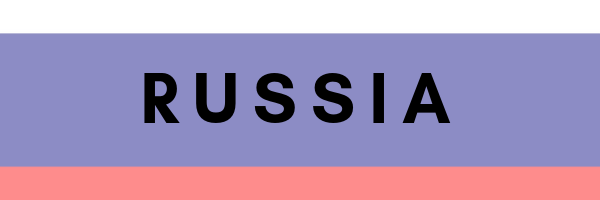
Russia continues to propagandize the Venezuela crisis condemning any U.S. action or aid as a pretext for military intervention while sending Russian medical supplies and grains to Venezuela accompanied by military armament. Maduro accepted and publicly thanked Russia for its humanitarian assistance and showcased the advanced military technology from Russia. Moscow has recently agreed to bilateral talks with Washington to discuss the crisis and in the meantime Gazprom has freezed Venezuela’s accounts, although this has been denied by Maduro, and Russia’s Lukoil has stopped swap operations with Venezuela. This is not a hard loss for Russia, who has gained direct access to Venezuela’s vast oil reserves, but may serve as a negotiating tactic in its bilateral talks with the Trump administration.
As the crisis worsens, Russia reaches out to Venezuela’s top regional allies approving a $43 million loan for Cuba’s defense sector and increasing its engagement with Bolivia. President Vladimir Putin has announced plans to visit Bolivia this spring, to focus on strategic cooperation in a range of areas, with an emphasis on nuclear technology and research.
- Calling it a “mere pretext” for sinister intent, Russia vetoed a U.S. resolution in the United Nations Security Council for new elections and unhindered distribution of humanitarian aid in Venezuela. – The New York Times on 28-FEB
- According to DefesaNet, the Maduro government has positioned the S-300VM Air Defense Missile System near the border with Brazil. This is the second action after announcing the closure of the border with Brazil, which occurred at 20 hours on Thursday, February 21. – Brazil Monitor on 22-FEB
- Russian lender Gazprombank has decided to freeze the accounts of Venezuelan state oil company PDVSA and halted transactions with the firm to reduce the risk of the bank falling under U.S. sanctions, a Gazprombank source told Reuters. – Reuters on 17-FEB
- The worsening situation in Venezuela, with two governments claiming to have legitimacy, dividing the globe into teams, does not undermine the aggressive actions of Nicolás Maduro who has announced the purchase of thousands of surface-to-air Igla missiles. – Defensa.com on 14-FEB (content in Spanish)
- Russian oil producer Lukoil’s trading arm Litasco has stopped carrying out swap operations with Venezuela since U.S. sanctions were imposed on the Latin American country’s state oil company in January, Lukoil CEO Vagit Alekperov said. – Reuters on 14-FEB
- Russian President Vladimir Putin will meet with Bolivian President Evo Morales to strengthen strategic ties and discuss the humanitarian crisis in Venezuela, Russia’s ambassador to the country said. – Breitbart on 08-FEB
- Russia has approved a €38 million euro ($43.27 million) loan for Cuba’s defense sector, a senior Russian defense official has said. The deal was first announced in November after Russian President Vladimir Putin met Cuban President Miguel Diaz-Canel in Moscow. – Reuters on 06-FEB
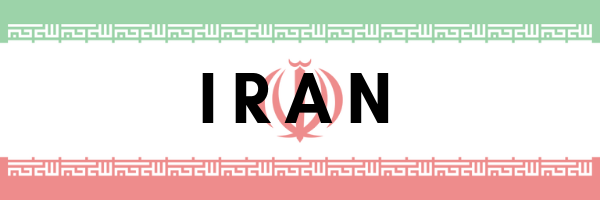
Under increasing economic pressure, Iran and Venezuela continue to denounce the U.S. and find ways to evade Treasury OFAC sanctions. The nexus for sanctions evasion for both nations appears to be Turkey. Last month’s VRIC Monitor highlighted Venezuela’s gold shipments to Turkey, and in February there were conversations led by Maduro’s officials to increasingly use Turkey as a global banking hub for ALBA nations. This increases the concern that Turkey could be triangulating trade with Latin America to the benefit of Iran. In this same regard, the recent bilateral talks between Qatar and Venezuela raise concern that another avenue to evade sanctions for Iran and Venezuela could be in the works. Meanwhile, Iran has joined the battle over humanitarian aid to Venezuela by pledging to send medical supplies. This was reinforced in an extensive Mehr News interview with the Venezuelan ambassador to Iran, Carlos Antonio Alcalá Cordones, the brother of Venezuelan Major General Cliver Alcalá.
- Iran state media reports, Iran’s Food and Drug Administration director, Mahdi Pirsalehi, said his organization is prepared to send medicine and medical equipment to Venezuela and provide the Latin American nation with the technical know-how in the medical sector under a mutual agreement signed in 2018. – Tehran Times on 24-FEB
- Iranian Foreign Minister Mohammad Javad Zarif and Venezuelan Deputy Foreign Minister Ruben Dario Molina have discussed the latest developments in the Latin American country, condemning the U.S.’ interventionist policies. – Iran Front Page on 24-FEB
- Iran state media reports, Ambassador of Venezuela to Tehran Carlos Antonio Alcala Cordones answered the questions of Mehr News correspondents during an exclusive interview. – Mehr News on 16-FEB
HEZBOLLAH
- Republican Senators Ted Cruz and Chuck Grassley have asked top national security officials to brief lawmakers following Secretary of State Mike Pompeo’s pronouncement that Hezbollah terrorists have active cells in Venezuela and could use connections in Central America to enter the United States via the southern border. – The Washington Examiner on 20-FEB
- Responding to a question on current instability in Venezuela and the presence of terrorist groups in the region, specifically Lebanese Hezbollah, U.S. Secretary of State Mike Pompeo confirmed in a recent interview that the Trump administration believes that the “Party of God,” as Hezbollah is known, maintains “active cells” in Venezuela. He went on to say that “Iranians are impacting the people of Venezuela,” because Hezbollah is trained, financed, and equipped by Tehran. – Foreign Policy on 09-FEB
- Hezbollah Secretary General Seyyed Hassan Nasrallah received a letter from Nicolás Maduro. According to the Kuwaiti newspaper Al-Siyassah, Maduro wrote the letter to Hezbollah’s secretary-general after he took a stance in condemning Washington’s interventionism aimed at destabilizing Latin American countries. – The Leaders News on 04-FEB
- In a Foreign Policy article from February 14, Emanuele Ottolenghi, senior fellow at the Foundation for Defense of Democracies, proclaimed Paraguay as a fiscal paradise for terrorists. Paraguayan Vice President Hugo Velázquez and Interior Minister Juan Ernesto Villamayor quickly denounced the article but have yet to respond to the facts. – ABC Color on 21-JAN (content in Spanish)
TURKEY
- For weeks, Venezuela’s central bank president Calixto Ortega had seemingly gone missing. His staff hadn’t seen him, they had no idea where he was and had even begun to wonder if perhaps he had abandoned his post or fled the country. In reality, Ortega was on a long trip to Turkey, China, and Russia to meet with officials and discuss financing and banking, but hadn’t bothered to tell most aides, according to four people with direct knowledge of the situation. – Bloomberg on 04-MAR
- Officials in Nicolás Maduro’s regime told a group of executives representing about 50 consumer companies to open bank accounts in Russia, Turkey, China, and India and to begin building relationships with suppliers in those countries, according to two people with direct knowledge of the meeting. – Bloomberg on 20-FEB
- Turkish state media reports, Turkish police seized around 80 kilograms of cocaine in an Istanbul port, officials said on February 14. Anti-drug teams seized the drug from containers in a ship carrying bananas from South American country of Ecuador. – Hurriyet Daily News on 14-FEB
- Venezuela’s most successful financial operations in recent years have not taken place on Wall Street, but in primitive gold-mining camps in the nation’s southern reaches…..Venezuela exports part of its gold to Turkey, then uses some of the proceeds to buy that nation’s consumer goods, according to opposition legislator Carlos Paparoni. Turkish pasta and powdered milk are now staples in Maduro’s subsidized food program. Trade between the two nations grew eightfold last year. – Reuters on 10-FEB
QATAR
- A senior Venezuelan minister has underlined the deep friendship between Qatar and his country, saying both sides support each other. Ruben Dario Molina, Deputy Minister of Foreign Affairs for Asia and the Middle East, said his country rejects the unjust blockade imposed on Qatar, noting that the Venezuelan government, since the beginning of the crisis, has announced its readiness to provide all forms of support and assistance to mitigate the harm caused to Qatar. – Gulf Times on 21-FEB
- The Maduro regime released a statement on its recent bilateral meeting with Qatar: In the framework of the work agenda, Foreign Minister of the Bolivarian Republic of Venezuela, Jorge Arreaza in the United Nations (UN) and the Vice-minister for Multilateral Issues of the People’s Power Ministry for Foreign Relations, Felix Plasencia, met with the ambassador of the State of Qatar to the UN, Alya Ahmed Saif Al-Thani. The meeting served for the representatives of both nations to discuss the current situation of Venezuela, and the unilateral coercive measures imposed by the U.S. government to generate pressure during the [illegitimate] term of Nicolás Maduro. – Bolivarian Government of Venezuela on 12-FEB
- Pro-government Qatari press states that the Chairman of the Supreme Judiciary Council and President of the Court of Cassation, H E Dr Hassan bin Lahdan Al Mohannadi, met yesterday with the President of the Supreme Court of the Republic of Paraguay, Dr Jose Raul Torres Kirmser. The meeting discussed the judicial and legal cooperation between the two friendly countries and prospects to enhance it. – The Peninsula on 06-FEB
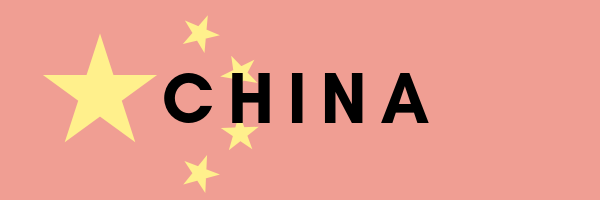
China continues to push for trade dominance in Latin America combined with diplomatic overtures. In February, China extended its diplomatic relations with Guyana and the Dominican Republic. The former could be a strategic ally, as Guyana may begin producing more oil than Venezuela in the near future. Among the many deals signed with the Dominican Republic, cooperation agreements in agriculture match China’s focus on agrotrade as a centerpiece to its raw resource extraction model in Latin America. This agrotrade accompanies a number of lithium deals signed in February with Bolivia and Chile. Combined with other existing extra-economic projects, such as the Chile fibre-optic cable and Bolivia’s Tupac Katari satellite, the lithium deals provide China continued accrual of intellectual property through infrastructure projects such as the Panama cargo railway, a solar plant in Argentina, and a inter-oceanic monorail in Brazil.
- When it finishes in May, the Cauchari solar plant in the Puna Jujeña (in Argentina) will be the region’s largest energy installation of its kind. But is the project just one more example of Argentina’s deepening ‘strategic’ ties with China, or is it the sign of a broader shift towards Beijing developing clean energy overseas? – Buenos Aires Times on 02-MAR
- A space program for Bolivia might seem a low priority given the South American nation’s internal challenges of poverty, inequality and lack of infrastructure. Enter China, with the know-how, launch facilities and an established hunger for Latin American raw materials. – The Sydney Morning Herald on 21-FEB
- According to an article on br-cn.com, Luiz Roberto Barcelos, chairman of Abrafrutas (Brazilian Fruit Export Association), stated that 2019 could be the year that the value of Brazilian fruit exports reaches the milestone of $1 billion. The Chinese market is the main focus of Brazilian fruit export this year. – Fresh Plaza on 19-FEB
- China’s Tianqi Lithium Corp will acquire a lithium mine in the Del Carmen salt flat in northern Chile in a $4.1 billion deal. – Caixin Global on 19-FEB
- Media reports suggest that the Chinese government is considering investing a further $5.5 billion in a high-speed passenger and cargo railway that will connect Panama’s two business hubs, Panama City with the Chiriqui Province, situated on Panama’s western coast. – Clyde & Co on 15-FEB
- Scarcely eight months after breaking diplomatic relations with Taiwan, the Dominican Republic is already pointing to the benefits of its newly-established relationship with China. The two recently countries cemented their bond by signing 18 new cooperation agreements, including on agriculture, culture, and tourism, according to Dominican newspaper Listín Diario. – Diálogo China on 14-FEB
- Chinese state media reports, Chinese leading electric vehicle maker BYD has signed a deal to start building its SkyRail in Salvador, Brazil, according to a release of BYD North America. The 20-kilometer-long seaside route will be partially built above the sea to connect Salvador’s central business district to Sao Joao Island. – Xinhua Net on 14-FEB
- Peruvian NGOs expressed their concern about the growing economic influence and increasing participation of Chinese companies in Latin America. These companies consistently violate human rights, pollute waters and the region, and threaten the health and culture of indigenous populations, as they carry out extractive and energy projects and build infrastructure for their own benefit. – Diálogo on 07-FEB
- A Chinese consortium is planning to invest $2.3 billion to produce lithium and other minerals in Bolivia under a deal signed with the Bolivian government. Under the preliminary agreement, TBEA Group-Baocheng will begin initial studies to form a joint venture with Bolivian state lithium producer YLB to build and operate a series of plants to produce the minerals from the Coipasa and Pastos Grandes salt flats in western Bolivia, the government said in a statement. – S&P Global on 06-FEB
- COFCO International (cil), the overseas trading arm of China’s state-owned food and oil giant, wants to “become a true global agribusiness,” says Chi Jingtao, its chairman. It is barely four years old. Mr Chi’s aims are not only commercial but strategic. – The Economist on 31-JAN
- Representatives of China and Guyana both referenced the un-tendered project to convert the town of Lethem into a major trading hub at a July 2018 ceremony at which Guyana signed up to China’s Belt & Road Initiative (BRI). As part of the ambitious global connectivity plan, China has promised $250 billion for Latin American infrastructure projects. Chinese firms have developed infrastructure projects in Guyana before, but the port and road project would be the largest yet. – Diálogo China on 28-JAN
Disclaimer: The VRIC Monitor does source a limited amount of media reports from state-owned or -controlled media outlets from VRIC nations. These media reports are carefully selected and solely intended to report on cultural, diplomatic, economic, or military activities that are not reported on by other media and relevant for understanding VRIC influence in the region. Given the inevitability that state propaganda will be mixed into these articles, we ensure that reporting from state-media outlets is no more than 20 percent of the overall VRIC Monitor and exclude any opinion pieces or anti-US (anti-West) declarations of any kind.


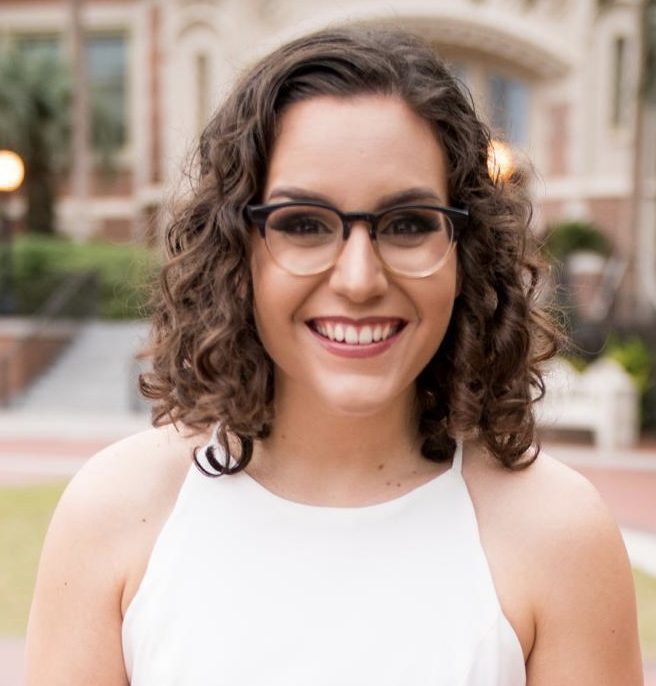 Christina Armes Hunter
Christina Armes Hunter